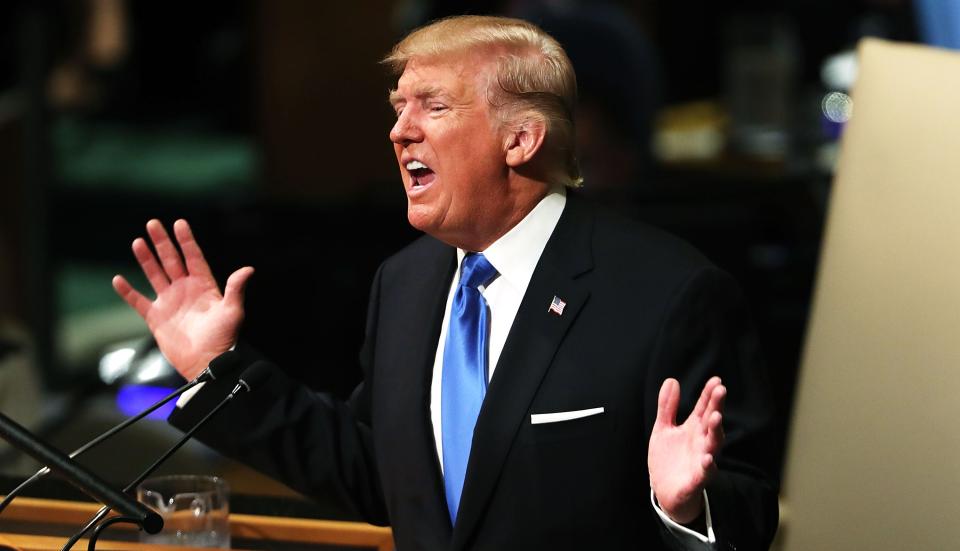US President Donald Trump’s recent threat to quit the multilateral Iran Nuclear Deal has revealed a complicated mixture of diplomatic intentions, according to Zhang Jingwei, senior researcher at the Charhar Institute, an independent think tank, writing for
China.com.cn.
Zhang believes Trump intends to further pressure Iran to strictly abide by the deal and meanwhile demonstrate to international society, especially the other five participating countries in the deal, including China, Russia and Germany, that the US still plays a dominant role in Iran issues.
Trump’s hardline remarks are also hailed as a conciliatory gesture toward political hawks within the US, who condemned Barack Obama’s fence-mending attempts with Iran and Cuba during his term as being hasty and selfish, Zhang said.
The president’s unyielding opposition to the nuclear deal is expected to last for a long time, which will lead Iran to significantly lower its expectations for diplomatic relations with the US, according to Zhang. This will instead give the Trump administration plenty of leeway for necessary mediation, he said.
But Trump’s move is surely a sign of disrespect to the other participants in the deal and thus will likely affect its cooperation with them, Zhang said. If the US were to really withdraw from the deal, he said, Iran will be encouraged to restart its nuclear plans and end up triggering an arms race with Saudi Arabia.
Iran’s nuclear capacity may not be able to threaten the US mainland in the short-term, the scholar said, but the US is expected to have its presence in the Middle East effectively minimized by the changed geopolitical status in the region.

 Old Version
Old Version